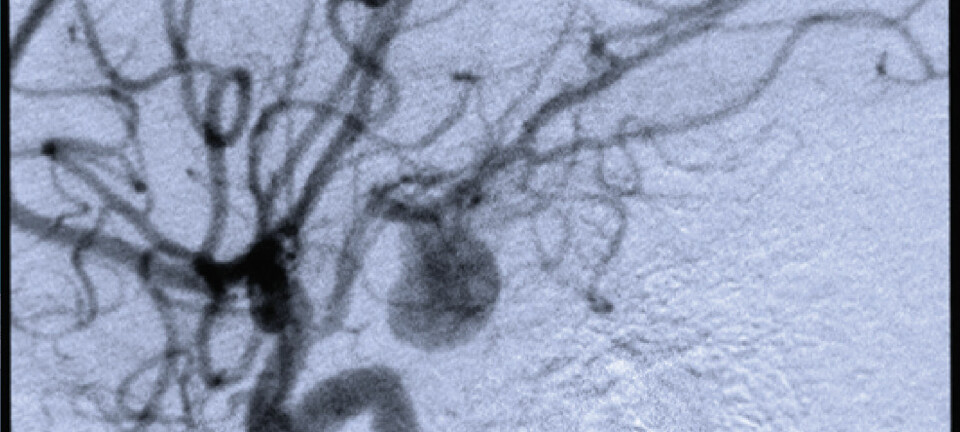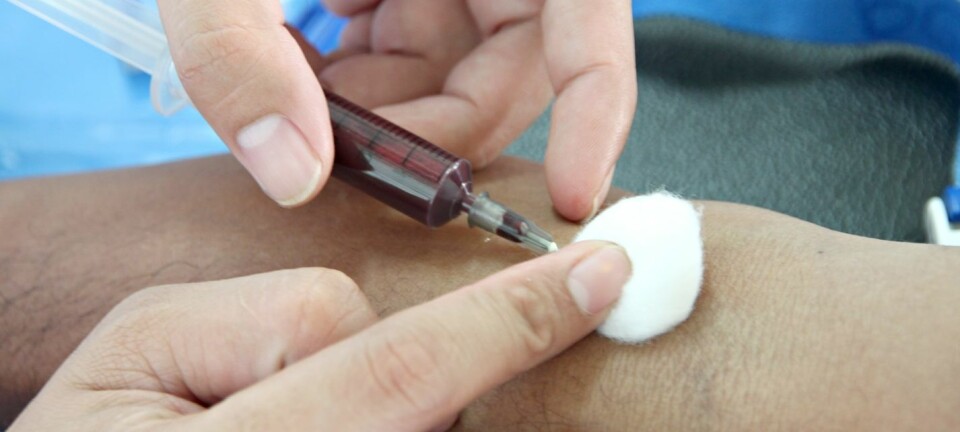
Treatment during the embryo stage can help haemophiliacs
Some haemophiliacs develop immunity to their treatment. New study aims to change that.
Imagine if your blood wouldn’t clot after you’d cut yourself. Instead, the blood just keeps flowing and there's nothing you can do to stop it.
That’s the reality for people who suffer from haemophilia.
Because of this they're dependent on a blood coagulant to stop any bleeding that may occur. Without it, the disease can kill them.
The problem with the medicine is that the haemophilia patients' immune systems can develop a resistance to it so it no longer has any effect. This can be lethal.
But there's hope. A new international research project has shown how this problem might be avoided in the future.
If a person is exposed to the medicine while still in the embryo stage, the immune system will not develop a strong resistance later in life, the new study, which was done on mice, shows.
"As a result, the immune system will 'think' later in life that the medicine is part of the body's innate functionality and so it will continue to be effective," explains post-doc Sune Justesen from the Department of Biology at Copenhagen University.
The new discovery has jut been published in the journal Science Translational Medicine.
An elegantly simple principle
Professor Jørgen Ingerslev, MD, from the Institute of Clinical Medicine at the Department Biomedicine of Aarhus University studies haemophilia but was not involved in the new study.
According to Ingerslev, the new study is complex but elegantly simple nevertheless in its approach to solving the problem for the 30-50 per cent of haemophilia patients who suffer from the complication of developing immunity to the medicine.
He does, however, believe there are obstacles to be overcome before this kind of treatment can become usable.
"The principle is elegantly simple, but one can doubt its practical applicability because you typically don’t discover the disease until after the child is born," he says.
Can be used to treat other diseases
Justesen admits that it may be some time before a similar procedure can be used in the treatment of human patients.
All the same, he can imagine a future treatment that parents can resort to if there’s a substantial risk of their child suffering from haemophilia -- for instance if one of the parents has the disease.
In such case, the mother can be injected with haemophilia medicine so that the child encounters the medicine already as an embryo and then the immune system is tricked into believing that the drug is one of the body's own molecules
"Perhaps it can be used as a general technique for deceiving the immune system so that it believes that something foreign has the right to be in the body,” says Justesen. “This could be beneficial for a whole range of other diseases where the treatment depends on sustained medication which the body often becomes resistant to.”
The immune system attacks the medicine
The new study specifically concerns patients suffering from haemophilia A.
The disease prevents the body from producing the blood coagulating protein 'Factor VIII'.
The treatment is to give the Factor VIII but since the majority of haemophilia patients produce no factor VIII themselves, their immune systems will regard the Factor VIII as 'foreign' and start producing antibodies to combat the medicine.
When the immune system builds up antibodies against Factor VIII, the antibodies bind themselves to the protein, eliminating its medicinal effect. The consequences of this can be fatal since the haemophiliac can bleed to death.
Embryo becomes acquainted with medicines
In their experiments, Justesen and colleagues used a natural transport molecule that are responsible from carrying various substances from the mother and into the embryo.
This transport molecule is known as a neonatal FC receptor which is used naturally to exchange antibodies between the mother and embryo in humans and mice alike.
The scientists fused FC fragments with Factor VIII and injected it into pregnant mice.
The procedure meant that the embryos became familiar with the Factor VIII at the time when it was learning which molecules belong to the body and shouldn’t be attacked.
"The result of the experiment was that immune systems of the newborn mice recognised that Factor VIII as part of the body, so it didn’t attack the medicine when it was given to the mice later in life," says Justesen.
---------------
Read the original story in Danish on Videnskab.dk
Translated by: Hugh Matthews









